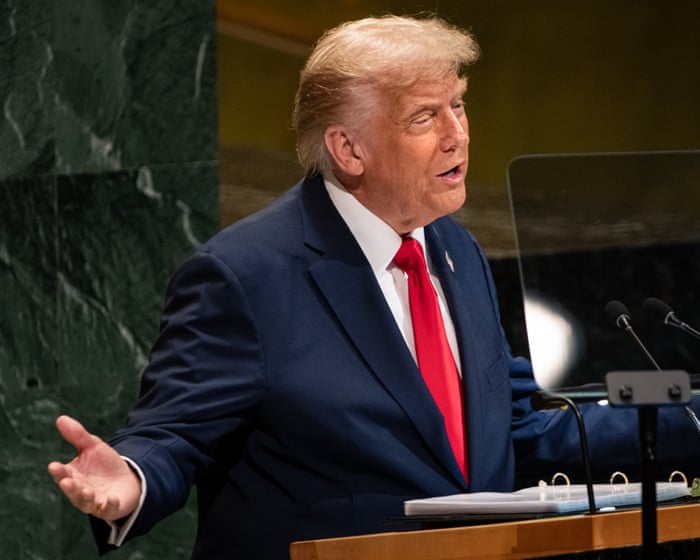Former British Prime Minister Harold Macmillan once remarked that the Middle East didn’t have “problems” because problems imply solutions. Now, Keir Starmer becomes the latest UK leader attempting to prove Macmillan wrong, proposing what Downing Street calls a “pathway to peace” for Gaza and the broader region. However, Britain’s past interventions don’t inspire much confidence.
### The Balfour Declaration (1917)
Authored by then-Foreign Secretary Arthur Balfour, this historic document expressed British support for “the establishment of a national home for the Jewish people” in Palestine. Incorporated into Britain’s UN mandate over Palestine (1923–1948), it helped lay the groundwork for Israel’s creation.
But the declaration also included a crucial condition: nothing should undermine the “civil and religious rights” of Palestine’s “existing non-Jewish communities.” While Britain recognized Israel de facto in 1949 and de jure in 1950, many Palestinians argue the second part of Balfour’s promise remains unfulfilled.
### The Suez Crisis (1956)
Britain saw Egyptian President Gamal Abdel Nasser’s Arab nationalism as a threat to pro-Western states like Jordan. For Israel, Nasser was dangerous because he allowed Palestinian militants to launch attacks from Egyptian-controlled Gaza.
Tensions peaked when Egypt nationalized the Suez Canal in July 1956. In a secret deal, Israel agreed to invade Egypt’s Sinai Peninsula, prompting British and French forces to intervene under the pretext of separating warring sides—while actually seizing the canal.
The Anglo-French operation failed spectacularly, but Israel succeeded in capturing Sinai, destroying three Egyptian divisions. This cemented Israel’s reputation as a formidable military power, leading Britain to supply arms in the 1960s, believing a strong Israel would deter future wars.
### UN Resolution 242 (1967)
After Israel’s victory in the Six-Day War against Egypt, Syria, and Jordan, Britain helped draft UN Security Council Resolution 242. This established the “land for peace” principle, calling for:
– Israeli withdrawal from occupied territories (Gaza, West Bank, East Jerusalem).
– Recognition of every state’s sovereignty and right to live in secure borders.
Critics later argued the resolution was too vague and reduced Palestinian aspirations to a mere “refugee problem,” ignoring their national rights.
### The Venice Declaration (1980)
By 1978, the U.S. had taken the lead in Middle East diplomacy, brokering the Camp David Accords between Egypt and Israel. The agreement proposed a “self-governing authority” for the West Bank and Gaza, but Palestinian self-determination was barely acknowledged—no Palestinians were even at the negotiating table.
Britain’s influence waned as America became the dominant mediator, leaving past interventions as cautionary tales for Starmer’s new peace efforts.The European and British stance on Palestinian statehood was outlined in the 1980 Venice Declaration by the European Economic Community. It stated: “The Palestinian people must be enabled, through a process established within a comprehensive peace agreement, to fully exercise their right to self-determination.”
The declaration also insisted on involving the Palestine Liberation Organization (PLO), which was controversial at the time because the PLO still advocated for Israel’s destruction. This drew criticism from the U.S.
Even under staunchly pro-Israel leaders like Margaret Thatcher and John Major, British policy stayed aligned with the broader European position. In 1995, Major became the first Western leader to meet Yasser Arafat within the Palestinian Authority’s territory, established under the U.S.-brokered Oslo Accords overseen by President Bill Clinton.
### The ‘War on Terror’ Era
The second intifada (2000–2005) erupted after the failed Camp David summit, which had aimed to finalize a peace deal. The uprising coincided with the post-9/11 “war on terror.” Tony Blair leveraged his close ties with President George W. Bush to propose the 2003 Roadmap for Peace, which envisioned a two-state solution by 2005—but the plan collapsed.
After leaving office, Blair served as envoy for the Middle East Quartet (UN, EU, U.S., and Russia), focusing on Palestinian economic development and governance reforms. However, progress was slow, and he resigned after nearly eight years amid Palestinian criticism over his perceived pro-Israel bias—including his eulogy at former Israeli Prime Minister Ariel Sharon’s funeral.
Subsequent British prime ministers—Gordon Brown, David Cameron, Theresa May, Boris Johnson, Liz Truss, and Rishi Sunak—have faced criticism for merely repeating the two-state solution as the only viable path without dedicating meaningful effort or political capital to achieve it.



